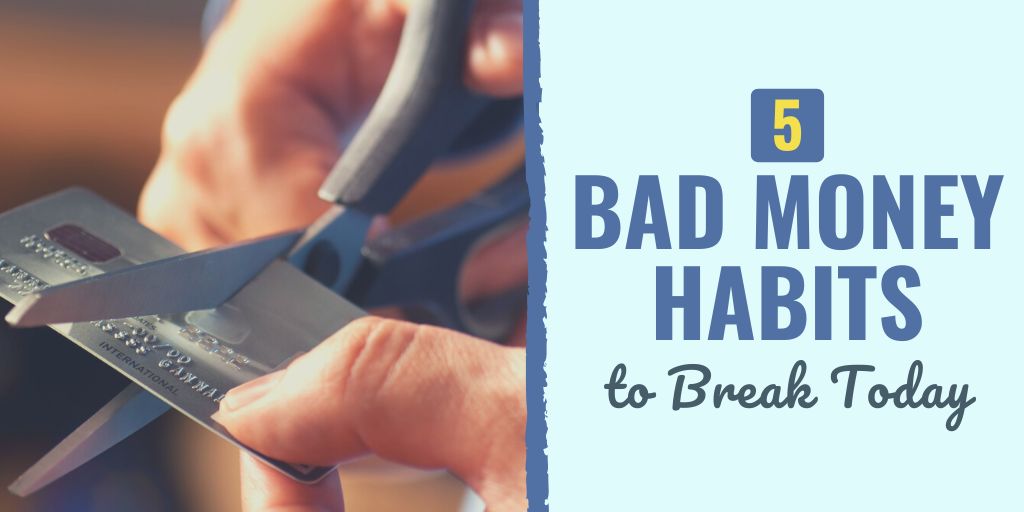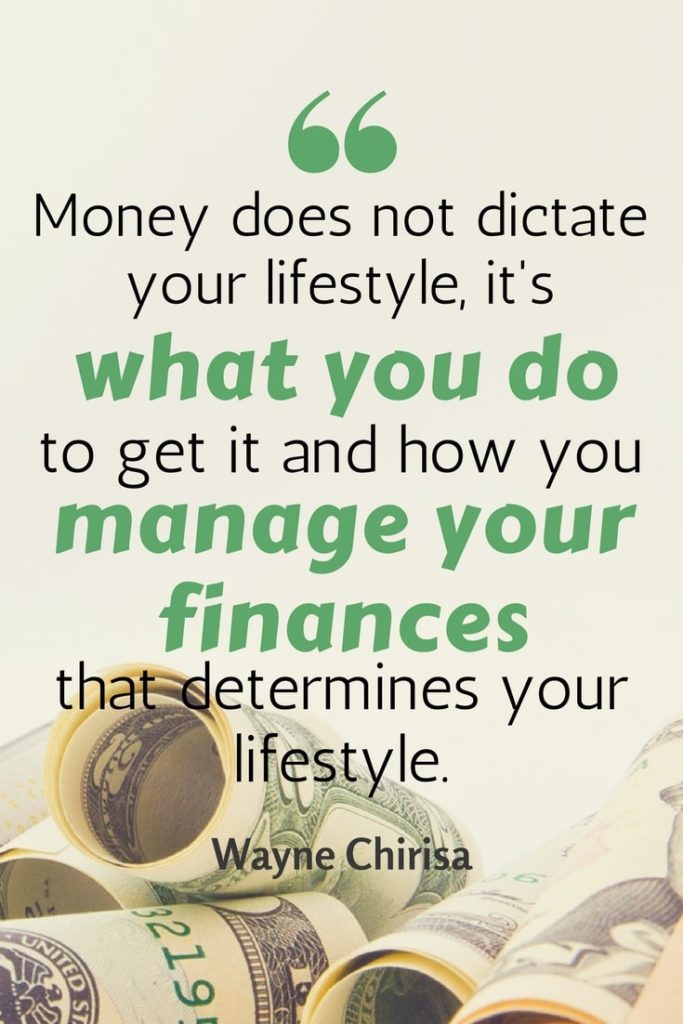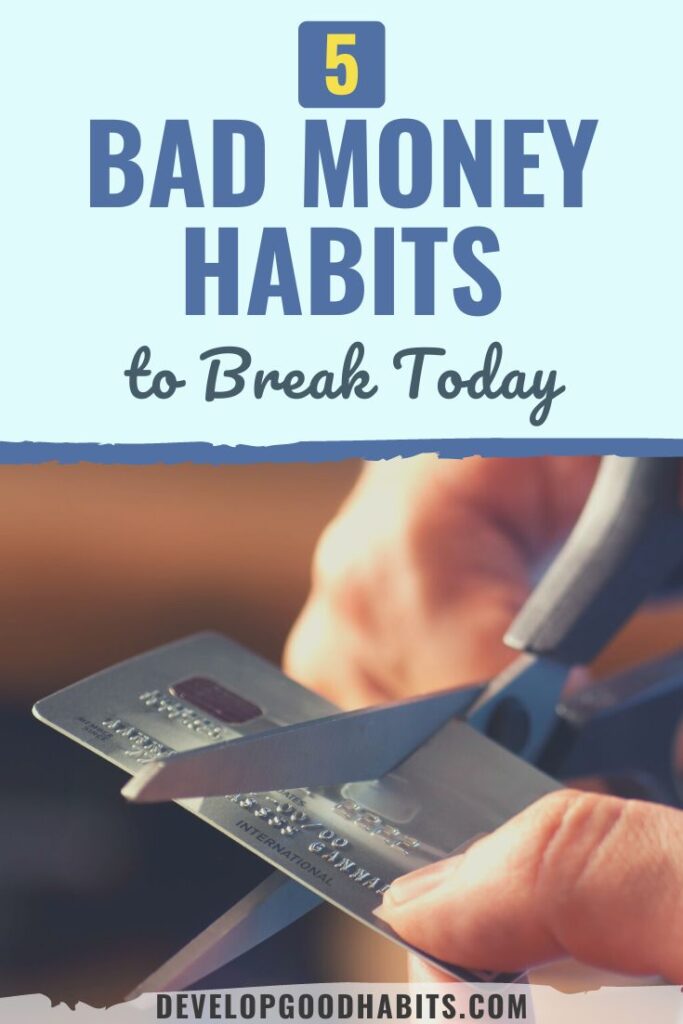Do you have bad money habits?
Are you constantly broke? Needing to borrow money to make ends meet? Spending far more than you should. Impulse buying? Have no idea what a balanced budget looks like? (much less how to make one.)
If any of the above bad money habits sound familiar, you need to take better control of your finances. Or at least learn some lessons to not fall into the major money bad habit traps.
Micromanaging every aspect of our lives is an impossible task.
We just can't do everything that needs to be done, or we would have no time to do everything.
I am not a CPA and I do not expect you want to become one either. You do not need to become a financial expert by any means. This post will not teach you that level of financial mastery.
What this post will teach you is how to avoid a few very common mistakes people make with regards to their money. Simple things we all face that waste our money along with realistic (meaning: achievable) plan of action to address these issues
Let's get to it…
5 Bad Money Habits You May Be Guilty of
There is no judgment in these bad financial habits. They are on this list because they are bad money habits that many people do.
These are not the actions of outliers, like spending money on cocaine and loose women. They are ways that 90% of the people, all of us, basically, could use to tighten up our finances.
By no means am I perfect? I fall in these money traps from time-to-time myself. Even though I realize they are not good habits. The important part is to realize these bad habits and try to avoid them most of the time.
Your wallet will love it if you are able to keep away from these bad money habits 90% of the time
1. Running Out of Household Supplies and Kitchen Staples
Do you wait until you've run out of a household, personal care or kitchen items before you replace them? If so, you're losing money.
When you wait until you deplete a consumer product, you have to pay whatever your local store happens to charge for it. If you plan ahead, however, and buy products when you can get a discount via sales and coupons, you can save 20% or more on things like batteries, toilet paper, pet food, and cleaning supplies.
You may have heard about “extreme couponing,” a practice of collecting as many coupons as possible and then tracking stores for sales.
When the “couponer” can get a good deal by combining one or more coupons with a discounted price, he or she heads to the store and buys that product, often in large amounts.
Some extreme couponers have rooms in their homes dedicated to their “inventory” of products that they've acquired for pennies on the dollar through couponing.
While you don't have to go to such extremes to save money, there is some wisdom in buying household goods when the price is right, rather than when you need the product.
Keep an eye out for coupons and sales online, in stores, and in newspaper circulars. When you find a good price on an item, head to the store, preferably with coupons in hand for additional savings.
Also, you may want to explore couponing apps like “Honey”.
2. Using Credit and Debit Cards for Everyday Purchases
Debit and credit cards have their advantages: You don't have to worry about your cash being lost or stolen, and sometimes, you can get great perks (like airline miles or cash back) on your purchases.
The trouble is that using plastic instead of cash can make it harder for you to track how much money you're spending.
While it's understandable that you may not want to carry around large amounts of cash, always using debit or credit cards for small, everyday purchases is a habit that may adversely affect your finances.
If you're not sure whether using plastic negatively impacts your spending, consider taking a month off from using debit and credit cards. Pay larger bills with online bill payment through your bank and carry small amounts of cash for other purchases.
Once you've given cash a try, you're better able to determine whether always using plastic is hurting your ability to budget effectively. If using cash isn't an option, consider using a personal finance app that categorizes and tracks your card-based spending, giving you an idea of where your money is going.
Some chatbots even exist nowadays that offer you as thorough and insistent tracking (read: guilt-inducing) of your expenses as you want.
3. Frequently Eating Out
There's nothing wrong with the occasional coffee at Starbucks or lunch with colleagues.
But if you have a habit of always buying your morning coffee from a shop, buying your lunch from a food truck, or ordering takeout for dinner, you're likely spending a lot of money that could be saved or used for better purposes.
As with many bad habits, eating out frequently often stems from a failure to plan ahead. For example, many people buy their morning coffee or lunch at a place near work because they didn't take the time to pack a lunch or pour a travel mug full of coffee or tea before leaving for work.
If packing a lunch is more than you can handle, consider spending a few hours each week preparing and freezing lunch items (such as wraps, frittatas, casseroles, and soups) that you can take with you to work each day.
Another option is to buy a sealed container, put your name on it, and then pack it with sandwich fixings (bread, lunch meat, cheeses, condiment packets) at the beginning of each week. Put it in your office refrigerator and make yourself sandwiches for lunch.
To avoid excessive coffee spending, consider buying an automatic drip machine. These machines make coffee quickly. Many also have a timer feature that lets you add coffee and water before you go to bed, providing freshly brewed coffee as you wake up. Have a cup at home, pour the rest into your travel mug, and away you go.

If you go to restaurants often or have food delivered multiple times a week, chances are that you don't have much food in the house or, even if you do have food at home, you don't have any idea of what you're going to do with it. You can address these tendencies with weekly meal planning.
Before going grocery shopping, sit down and plan your meals for the rest of the week. If you don't have the time to cook every evening, prepare meals ahead of time.
There are tons of recipe sites online that feature affordable “freeze-ahead” or “make-ahead” meals. Invest in some decent food storage containers and get cooking. You'll not only save money but since you control both ingredients and portion sizes, you may end up losing a few pounds if that's what you want to do.
4. Impulse Purchases
Every day you are surrounded by opportunities to buy things online and in physical stores. It's so easy to hit that 1-Click button on Amazon or pick up a cheap pair of sunglasses when you run into the drugstore to fill a prescription.
But as you probably already know, these little purchases add up to some serious numbers. You can end up spending hundreds, possibly thousands, of dollars each year on stuff that you don't need because you have a habit of buying things that just happened to catch your eye.
Again, advance planning is your best defense against impulse shopping. Get out of the habit of buying things that you may not need by turning off the 1-Click button and writing up a shopping list before you go into a store.
If you end up having to make an emergency purchase for something you truly need, buy that item and that item only. The product that caught your eye will very likely still be there tomorrow.
5. Spending Everything You Make
If you are a person who lives paycheck to paycheck, even though you earn enough to cover your needs and put some money into a savings account, you've developed a habit that likely stems from when you were making less money.
If you spent a couple of years earning a very low, entry-level wage, it may have been difficult to save money. Unfortunately, this means that you may have become comfortable with having no money at the end of a pay period.
For many people, when they start to make more money they experience lifestyle creep and still spend all their money. Watch the video below to learn how to avoid it.
Now is the time to get uncomfortable with the situation and start a savings and investment plan.
If you have never had to stick to a budget before, speak with a financial counselor who can offer a plan for paying down debt and setting up investment accounts. They can also assist in developing a budget that takes your wants and needs into account.
Final Thoughts on Bad Money Habits
The trouble with bad money habits is that they can sometimes be difficult to identify. This is because you've become so used to them, it's hard to understand the negative impact they have on your life.
Once you do identify them, however, you've taken the first step toward eliminating these bad habits and creating new, positive behaviors.
And if you're ready to improve your financial situation, start with by reading these articles:
- 15 SMART Personal Financial Goals to Increase Your Net Worth
- 11 Good Financial Habits for Lifelong Wealth
- 26 Best Money Habits (Saving, Budgeting, and Increasing Income)
Eileen Fowler climbed her way out of the hole of debt she once lived in, and is now devoted to helping other people avoid making the same mistakes as her by being preemptively smart about their financial habits.



